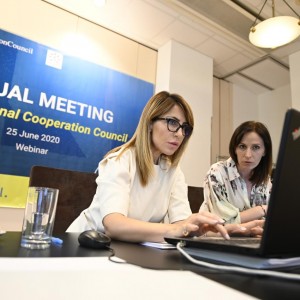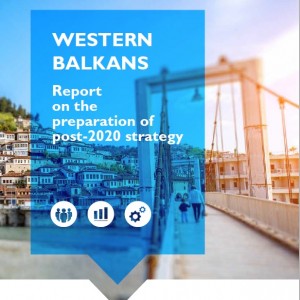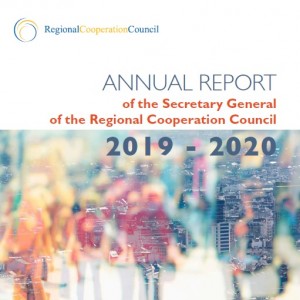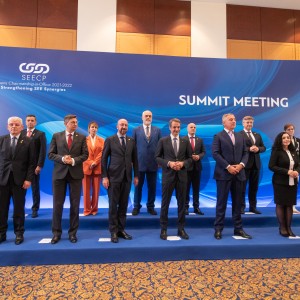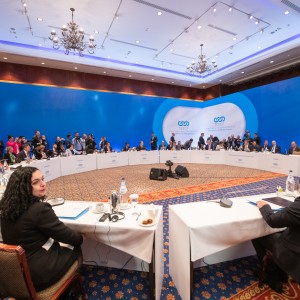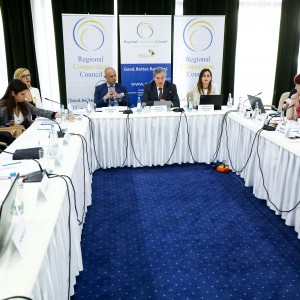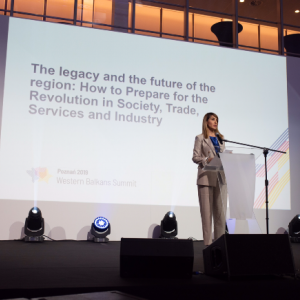Based on the inputs gathered during the data and information collection, the RCC develops the first draft of the SEE 2020 Annual Report on Implementation (ARI) and seeks feedback from the Monitoring Committee and the RDCs.
In the analysis and report-writing phase of the monitoring cycle, RCC develops the first draft of ARI by using the inputs gathered during the data and information collection phase, and seeks feedback from the Monitoring Committee and the RDCs.
It covers the activities undertaken in the previous year of the Strategy implementation. ARI sums up the progress achieved, arising issues and sets out some overall recommendations to adjust and strengthen the Strategy so it would address the changes wrought by the dynamic political and economic environment in which it is implemented. It also contains a more detailed review, pillar by pillar, of: the rate of progress towards the various national and regional targets set for each pillar, and an assessment of the probability of the target being met by the individual economies; a synopsis of the key achievements and activities under each policy dimension, and an outline of specific challenges; and tailored conclusions and recommendations for each policy area.
In May each year, the ARI is being officially endorsed by national governments in their inter-governmental procedures.
Following the endorsement of the ARI, the report is forwarded to the SEE 2020 Governing Board for adoption, thus completing the annual monitoring cycle.
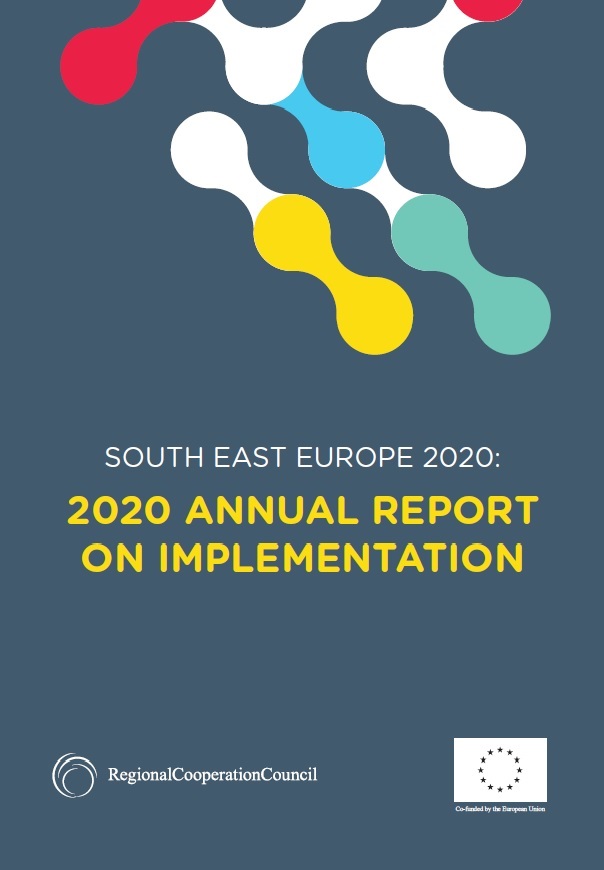
SOUTH EAST EUROPE 2020: ANNUAL REPORT ON IMPLEMENTATION FOR 2020
report | 30 APR 2021
This year’s edition of Annual Report on Implementation (ARI) for 2020 is composed of three parts. Part I provides a summary and a comprehensive overview of the progress achieved throughout the implementation of SEE2020 Strategy. Part II contains an analysis of the progress towards reaching domestic and regional targets set for each of the SEE 2020 growth pillars, whereas Part III provides key policy recommendations along key SEE2020 thematic areas.
ARI for 2020 reflects the progress achieved in 2019 across 11 headline targets and reports on the activities of regional dimension co-ordinators until mid-April 2020. Due to the ongoing situation and challenges coronavirus pandemic keeps imposing on our societies, ARI also sheds light on the most important regional dynamics as well as on regional achievements and successes which occurred during these increasingly challenging times.
Download: EN
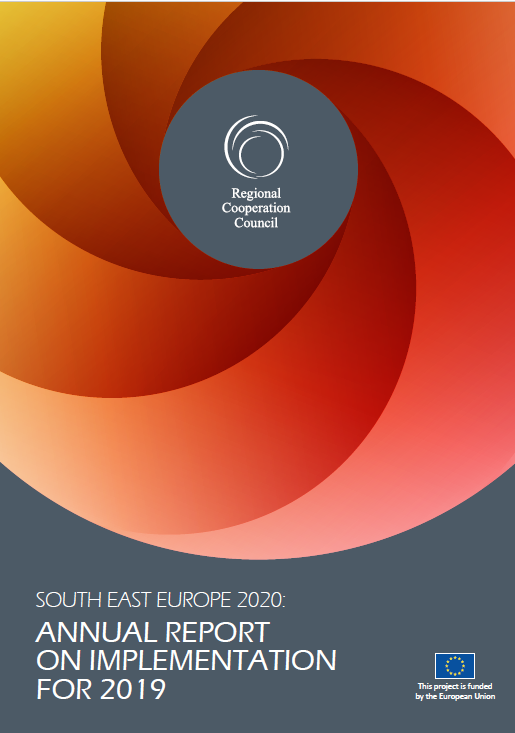
SOUTH EAST EUROPE 2020: 2019 ANNUAL REPORT ON IMPLEMENTATION
report | 22 JUL 2019
The report aims to present main achievements related to the implementation of the South East Europe 2020 Strategy (SEE 2020) for the period from May 2018 until May 2019. It is divided into three main parts: a summary overview of the progress achieved, a detailed review per pillar and key recommendations per each dimension.
The Report was endorsed at the SEE 2020 Governing Board meeting held on 8 July 2019 in Sarajevo, Bosnia and Herzegovina.
Download: EN
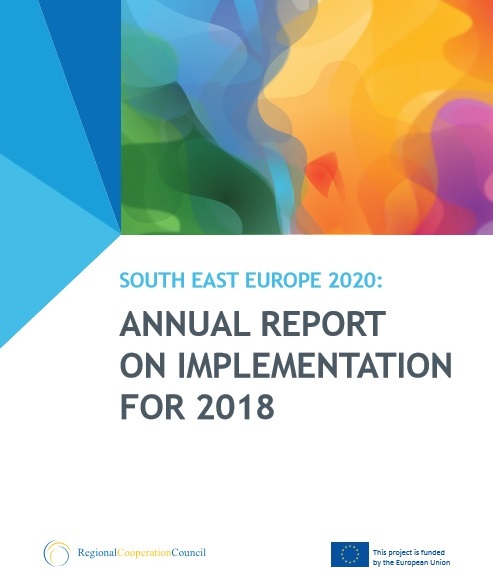
SOUTH EAST EUROPE 2020: 2018 ANNUAL REPORT ON IMPLEMENTATION
report | 05 JUL 2018
A comprehensive monitoring effort was introduced to measure the progress of SEE 2020 Strategy's activities implemented and results achieved. This Annual Report on Implementation (ARI) is the main output of the SEE 2020 monitoring process. This 2018 report covers the period from June 2017 to June 2018 and is divided into two main parts: a summary overview of the progress achieved, issues arising and a reflection on some of the lessons learned and overall recommendations for adapting and strengthening the Strategy to meet the challenges of a dynamic political and economic environment in which it operates, and a detailed review per pillar.
Download: EN
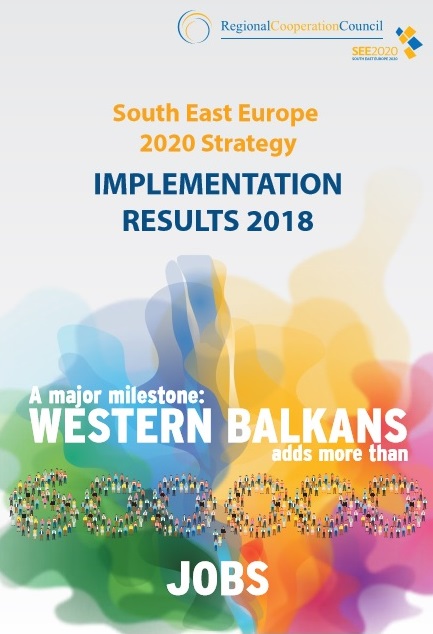
Brochure: South East Europe 2020 (SEE 2020) Strategy - 2018 IMPLEMENTATION RESULTS
brochure | 05 JUL 2018
The Western Balkans has returned to the growth path, having added more than 600 THOUSAND JOBS to its economies since 2010 and half a million highly educated people to its workforce. The region expanded its trade by additional EUR 33 BILLION and decreased its trade deficit from -23.1 to -19.7 percent of GDP over the last 7 years through strong export performance, signaling increasing competitiveness of its products and services on the international markets.
Download: EN
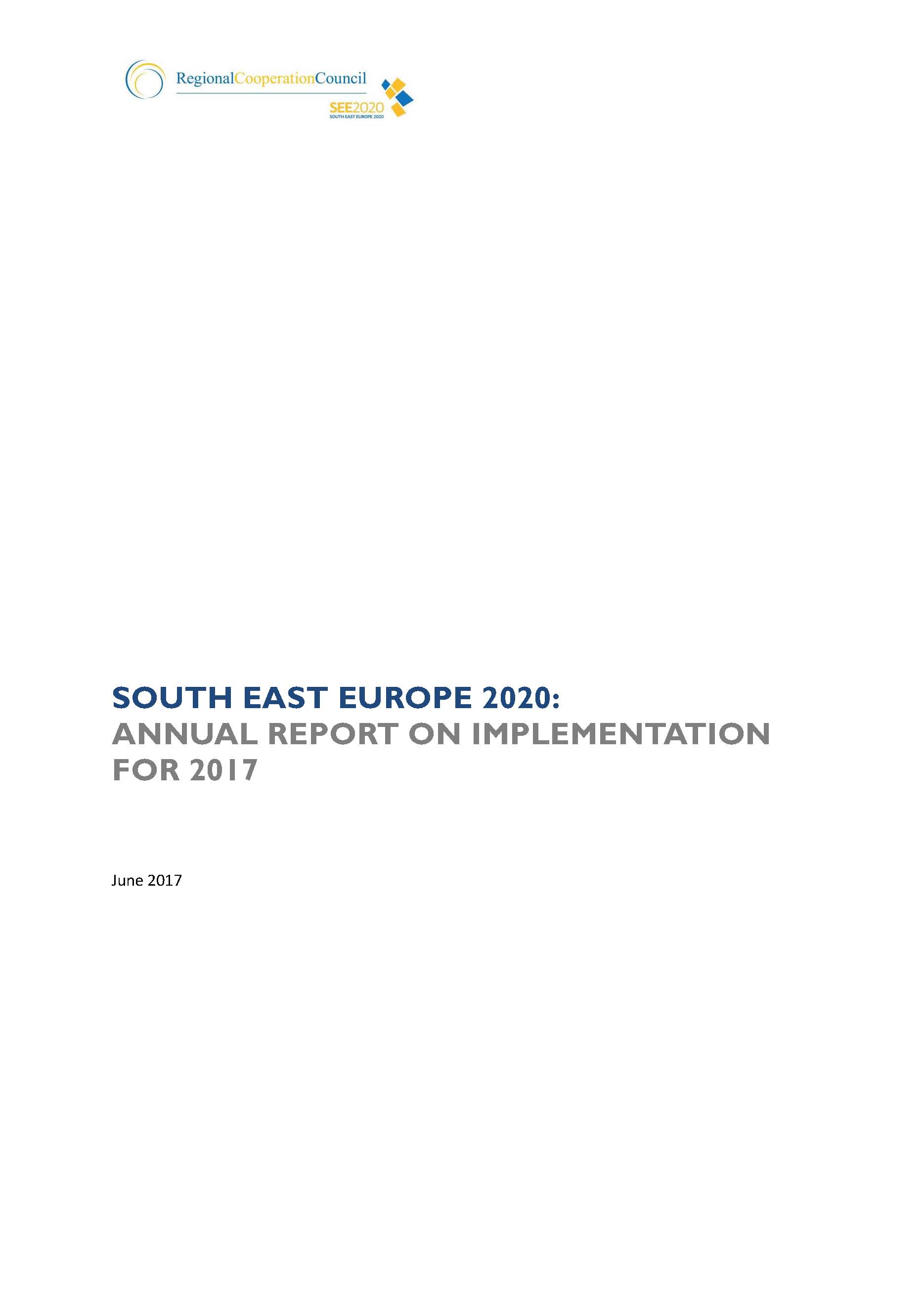
South East Europe 2020: 2017 Annual Report on Implementation
report | 29 JUN 2017
The report, endorsed at the SEE 2020 Governing Board meeting held on 28 June 2017 in Dubrovnik, Croatia, reflects the status of implementation of the RCC’s SEE 2020 Strategy.
Download: EN

South East Europe 2020: 2016 Annual Report on Implementation
report | 01 JUN 2016
The report, presented at the SEE 2020 Governing Board meeting held on 30 May 2016 in Pravets, Bulgaria, reflects the status of implementation of the RCC’s SEE 2020 Strategy.
Download: EN

South East Europe 2020: 2015 Annual Report on Implementation
report | 01 MAY 2015
The report, presented at the SEE 2020 Governing Board meeting held on 21 May 2015 in Tirana, Albania, reflects the status of implementation of the RCC’s SEE 2020 Strategy for the previous implanatation year.
Download: EN
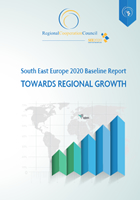
SEE 2020 Baseline Report: Towards Regional Growth
book | 19 JUN 2014
The report, presented at the First SEE 2020 Governing Board meeting, on 19 June in Bucharest, Romania, reflects the intensive work on implementation of the RCC’s SEE 2020 Strategy, as integral part of the RCC SWP 2014 – 2016, carried out during the past months, coordinated by the RCC Secretariat.
Download: EN




